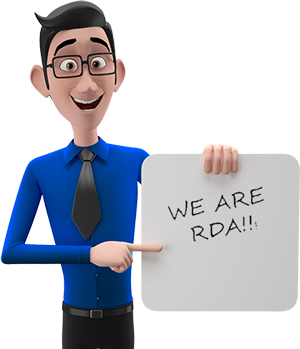Managing Community Amenities: Essential Strategies for HOAs
Community amenities play a crucial role in shaping the quality of life for residents in neighborhoods and housing developments. From swimming pools and dog parks to sports facilities and outdoor recreation areas, these shared spaces contribute significantly to the overall appeal and value of a community. Homeowners’ associations (HOAs) face the challenge of effectively managing these amenities to ensure they meet the needs and expectations of residents.
This article explores essential strategies for HOAs to successfully oversee community amenities. It covers topics such as assessing amenity needs, developing comprehensive plans, implementing reservation systems, and maintaining facilities for long-term use. Additionally, it examines ways to enhance safety measures, improve resident satisfaction, and create a thriving community environment. By following these guidelines, HOAs can optimize the use and enjoyment of neighborhood amenities for all residents.
Assessing Your Community’s Amenity Needs
To effectively manage community amenities, homeowners’ associations (HOAs) must first assess the needs and preferences of their residents. This process involves gathering data, analyzing demographics, and evaluating current amenity usage to make informed decisions about future improvements and additions.
Conducting resident surveys
One of the most effective ways to gage community needs is through resident satisfaction surveys. These questionnaires provide valuable insights into the experiences, opinions, and areas for improvement within the community. By gathering feedback directly from those living in the area, HOAs can identify common pain points and make data-driven decisions to enhance the overall living experience.
When creating surveys, it’s crucial to develop clear and concise questions that are easy to understand and answer. Including a variety of question types, such as multiple-choice, rating scales, and open-ended questions, can help increase response rates and engagement. Some examples of questions to include are:
- On a scale of 1-10, how strongly would you recommend our community for someone to live in?
- Is paying bills to [Name of Association] easy and well-organized?
- When you want to report a violation, can you easily communicate it with our board?
Analyzing demographic data
Understanding the demographics of your community is essential for tailoring amenities to meet residents’ needs. By analyzing data such as age groups, family sizes, and lifestyle preferences, HOAs can make informed decisions about which amenities to prioritize.
For example, a study found that more than half of Baby Boomers (52%) love HOAs, while only 39% of Millennials feel the same way. This information can help HOAs determine which amenities might appeal to different age groups within the community.
Evaluating current amenity usage
Assessing the usage of existing community amenities is crucial for determining their value and identifying areas for improvement. HOAs should gather data on how frequently residents use various facilities, such as swimming pools, dog parks, and sports facilities.
According to a survey, neighborhood landscaping is the most common service included in HOAs (64%), followed by security (44%), personal landscaping (34%), and sports and leisure amenities (31%). By evaluating the usage of these amenities, HOAs can determine which ones are most valued by residents and where improvements or additions might be necessary.
To gather this information, HOAs can:
- Implement a check-in system for amenity usage
- Conduct periodic observations of amenity areas
- Review maintenance and repair records
By combining the data from resident surveys, demographic analysis, and amenity usage evaluations, HOAs can create a comprehensive picture of their community’s needs. This information will guide decision-making processes for maintaining existing amenities, implementing new features, and ensuring that the community’s offerings align with residents’ preferences and expectations.
Developing a Comprehensive Amenity Plan
Creating a comprehensive amenity plan is crucial for homeowners’ associations (HOAs) to effectively manage community amenities. This process involves setting clear objectives, budgeting for amenities, and prioritizing projects to enhance the overall living experience for residents.
Setting clear objectives
To develop an effective amenity plan, HOAs must first establish clear objectives that align with the community’s needs and desires. This involves conducting resident surveys to gather feedback on existing amenities and potential improvements. By understanding the demographics of the community, HOAs can tailor their objectives to meet the specific needs of different age groups and family sizes.
One important objective is to enhance the community’s curb appeal and overall maintenance of common areas. Well-maintained outdoor spaces, such as swimming pools, dog parks, and sports facilities, play a pivotal role in keeping property values high and attracting potential homebuyers. Including landscaping services in the HOA fees ensures that all community members enjoy high-quality outdoor spaces without the need for special assessments or increased dues to cover unexpected maintenance costs.
Budgeting for amenities
Proper budgeting is essential for the successful implementation of an amenity plan. HOAs should review past financial records, including income statements and budgets, to identify budgetary gaps and volatile line items. This information helps boards plan the annual homeowners association budget more accurately.
When budgeting for amenities, it’s important to consider factors outside of the board’s control, such as inflation, rising costs of goods and materials, and higher labor costs. HOAs should also account for the reserve fund, which is used to pay for future major repairs and replacements of assets or components. Conducting regular reserve studies enables the association to anticipate large costs and plan accordingly.
Prioritizing amenity projects
To effectively manage community amenities, HOAs must prioritize projects based on their importance and impact on the community. When determining which projects to tackle first, boards should consider the following factors:
- Safety: Ensure that all amenities meet safety standards and address any potential hazards.
- Infrastructure: Focus on maintaining and improving essential infrastructure, such as water lines and electrical systems.
- Community value: Prioritize projects that enhance the overall value and appeal of the community.
- Resident satisfaction: Consider amenities that will improve the quality of life for residents and meet their needs.
By following these guidelines and incorporating resident feedback, HOAs can develop a comprehensive amenity plan that balances the community’s desires with financial sustainability. This approach ensures that community amenities are well-maintained, enhancing property values and resident satisfaction in the long run.
Implementing Effective Reservation Systems
Implementing an efficient reservation system is crucial for managing community amenities such as swimming pools, dog parks, and sports facilities. A well-designed system ensures fair access, prevents conflicts, and maintains the long-term sustainability of these shared spaces. To achieve this, homeowners’ associations (HOAs) should focus on choosing the right reservation software, setting fair usage policies, and managing peak demand periods.
Choosing the right reservation software
Selecting appropriate reservation software is essential for streamlining the booking process and enhancing the overall user experience. HOAs should look for a platform that offers a user-friendly interface, real-time availability updates, and automated notifications. These features make it easier for residents to reserve amenities and help reduce administrative tasks for the management team.
When evaluating reservation software options, consider the following key features:
- Mobile accessibility: Choose a mobile-first scheduling software that allows residents to easily view available slots and make bookings through a smartphone app.
- Online transactions: Enable automated online transactions for residents to pay fees or place deposits without visiting the office.
- Multiple booking options: Allow for various reservation types, including single bookings, recurring reservations, and waitlists for popular amenities.
- Data security: Ensure that the chosen software protects residents’ personal information and complies with data privacy regulations.
Setting fair usage policies
Establishing clear and fair usage policies is crucial for maintaining order and preventing misuse of community amenities. HOAs should develop guidelines that address the following aspects:
- Reservation time limits: Set maximum durations for individual reservations to ensure equitable access for all residents.
- Guest policies: Clearly outline rules regarding guest usage and any associated fees.
- Cancelation procedures: Implement a cancelation policy to discourage no-shows and allow other residents to use the amenities.
- Usage restrictions: Specify any limitations on the use of amenities, such as age restrictions or capacity limits.
To enforce these policies effectively, HOAs should:
- Communicate rules clearly: Make sure all residents have easy access to the usage policies and guidelines.
- Implement consequences: Establish a system of warnings, fines, or temporary suspensions for policy violations.
- Regularly review and update: Periodically assess the effectiveness of usage policies and make adjustments based on resident feedback and usage patterns.
Managing peak demand periods
During peak times, such as weekends or holidays, community amenities often experience higher demand. To ensure fair access and prevent overcrowding, HOAs can implement the following strategies:
- Time slot allocations: Divide popular time slots among residents to give everyone a chance to use high-demand amenities.
- Advance booking limits: Restrict the number of advance reservations a resident can make to prevent monopolization of prime time slots.
- Standby lists: Implement a waitlist system for fully booked amenities, allowing residents to claim spots if cancelations occur.
- Usage tracking: Monitor amenity usage patterns to identify peak periods and adjust policies accordingly.
By implementing these strategies, HOAs can create a fair and efficient system for managing community amenities. This approach not only enhances resident satisfaction but also contributes to the overall value and appeal of the neighborhood.
Maintaining Amenities for Longevity
Maintaining community amenities is crucial for homeowners’ associations (HOAs) to ensure the longevity and value of shared spaces. By implementing effective strategies, HOAs can keep swimming pools, dog parks, and sports facilities in excellent condition while managing costs and resident satisfaction.
Creating maintenance schedules
Developing a comprehensive maintenance schedule is essential for preserving community amenities. HOAs should conduct regular inspections to identify potential issues before they become major problems. By implementing a routine inspection schedule, associations can catch issues early and minimize repair costs. This proactive approach allows HOAs to address small-scale preventive maintenance tasks before they escalate into large-scale repairs.
To create an effective maintenance schedule, HOAs should:
- Walk the property and identify all areas that need attention annually
- Schedule each task and note its associated cost
- Use calendars to track and plan maintenance activities
- Conduct full community inspections at least once a year
By following these steps, HOAs can ensure that all aspects of the community, including swimming pools, dog parks, and outdoor recreation areas, receive proper care and attention.
Hiring qualified maintenance staff
Selecting the right maintenance professionals is crucial for keeping community amenities in top condition. When hiring maintenance staff or contractors, HOAs should consider the following factors:
- Experience and expertise in managing community amenities
- Proper licensing and insurance coverage
- Familiarity with local building codes and weather conditions
- Positive references and service records
It’s important to verify that maintenance staff have a thorough understanding of each part of the property and can provide high-quality service over time. By building relationships with skilled technicians who become knowledgeable about the community’s specific needs, HOAs can ensure more efficient and effective maintenance of amenities.
Addressing repairs promptly
Timely repairs are essential for maintaining the longevity of community amenities. HOAs should prioritize repairs based on their urgency and potential impact on resident safety and property values. To address repairs effectively, HOAs should:
- Establish a clear process for receiving and assigning work orders
- Implement a system for prioritizing repairs based on safety concerns and potential long-term damage
- Maintain open communication with residents about ongoing repair projects
- Track all work orders and tasks to ensure nothing falls through the cracks
By focusing on prompt repairs and preventive maintenance, HOAs can extend the useful life of community amenities and reduce overall maintenance costs. This approach helps ensure that outdoor recreation areas, sports facilities, and other shared spaces remain in excellent condition for residents to enjoy.
Implementing these strategies for maintaining community amenities can help HOAs create a thriving environment that enhances property values and resident satisfaction. By prioritizing regular maintenance, hiring qualified staff, and addressing repairs promptly, associations can ensure the longevity and appeal of their shared spaces for years to come.
Enhancing Safety and Security Measures
Implementing effective safety and security measures is crucial for homeowners’ associations (HOAs) to create a secure environment for residents. By focusing on access control systems, surveillance cameras, and emergency response plans, HOAs can significantly improve community safety.
Implementing access control systems
Access control systems play a vital role in managing entry to community amenities such as swimming pools, dog parks, and sports facilities. These systems help restrict access to authorized individuals only, enhancing overall security. HOAs should consider implementing key cards, fobs, or biometric scanners to control entry points effectively.
When selecting an access control system, HOAs should prioritize user-friendly interfaces and real-time availability updates. Mobile accessibility is essential, allowing residents to easily view available slots and make bookings through smartphone apps. Additionally, automated online transactions enable residents to pay fees or place deposits without visiting the office, streamlining the process.
Installing surveillance cameras
Installing high-quality security cameras is an essential step in enhancing community safety. Cameras with clear video resolution and night vision capabilities can monitor activity 24/7, deterring potential criminal activities and providing valuable evidence when needed. HOAs should strategically place cameras at all entry and exit points, parking lots, and common areas to ensure comprehensive coverage.
When selecting surveillance cameras, consider the following factors:
- Resolution: Choose cameras with high resolution for clear footage.
- Weather resistance: Opt for cameras that can withstand various weather conditions.
- Field of view: Ensure cameras have a wide field of view to minimize blind spots.
- Night vision: Select cameras with infrared capabilities for effective nighttime monitoring.
Regular maintenance and updates are crucial to keep the surveillance system effective and up-to-date.
Developing emergency response plans
Creating comprehensive emergency response plans is essential for HOAs to handle various crisis situations effectively. These plans should outline evacuation procedures, response strategies, and essential contact information. To develop an effective emergency response plan, HOAs should:
- Identify potential threats: Assess the community’s vulnerabilities and list possible emergency scenarios.
- Create a chain of command: Establish a clear organizational structure with designated roles and responsibilities.
- Develop evacuation procedures: Outline safe routes and assembly points for residents in case of emergencies.
- Compile essential contact information: Include contact details for emergency services, board members, and key vendors.
- Conduct regular drills: Practice emergency procedures to ensure residents are familiar with the plans.
By implementing these safety and security measures, HOAs can create a safer environment for residents, enhance property values, and foster a sense of community well-being. Regular assessments and updates to these measures will ensure ongoing effectiveness in maintaining a secure neighborhood.
Measuring and Improving Resident Satisfaction
Homeowners’ associations (HOAs) play a crucial role in maintaining and enhancing the quality of life within communities. To ensure that community amenities meet residents’ expectations, it’s essential to implement strategies for measuring and improving satisfaction. By focusing on resident feedback and continuously enhancing amenity offerings, HOAs can create thriving neighborhoods that residents are proud to call home.
Conducting regular satisfaction surveys
One of the most effective ways to gage resident satisfaction is through periodic surveys. These surveys provide valuable insights into the experiences and opinions of community members regarding various aspects of community living, including amenities like swimming pools, dog parks, and sports facilities. HOAs should consider implementing quarterly or biannual surveys to gather feedback on a regular basis.
When designing surveys, it’s important to keep them concise and easy to complete. Including a mix of quantitative (e.g., satisfaction ratings) and qualitative (e.g., open-ended responses) questions can provide a more comprehensive understanding of resident sentiment. Some key areas to focus on in surveys include:
- Overall satisfaction with community amenities
- Specific feedback on individual amenities (e.g., swimming pools, outdoor recreation areas)
- Suggestions for improvements or new amenity offerings
- Safety and security concerns
Addressing resident feedback
Once feedback has been collected, it’s crucial for HOAs to take action on the insights gained. This demonstrates to residents that their opinions are valued and can lead to tangible improvements in the community. Some strategies for addressing feedback include:
- Prioritizing issues based on frequency and severity
- Developing action plans to address common concerns
- Communicating progress and updates to residents regularly
By actively responding to feedback, HOAs can build trust with residents and create a more responsive community environment. This approach can help prevent minor issues from escalating into major problems that could lead to resident dissatisfaction or even turnover.
Continuously improving amenity offerings
To maintain high levels of resident satisfaction, HOAs should focus on continuously enhancing and updating community amenities. This involves staying attuned to changing resident preferences and industry trends. Some ways to improve amenity offerings include:
- Investing in modern technology: Implementing smart home features or eco-friendly solutions can appeal to environmentally conscious residents and improve overall quality of life.
- Organizing community events: Hosting regular activities such as barbecues, movie nights, or fitness classes can foster a sense of community and encourage residents to make the most of available amenities.
- Enhancing existing amenities: Regularly assessing and upgrading facilities like swimming pools, dog parks, and sports facilities can help ensure they remain attractive and functional for residents.
- Exploring new amenity options: Based on resident feedback and demographic trends, consider introducing new amenities that align with community interests and needs.
By focusing on these strategies for measuring and improving resident satisfaction, HOAs can create vibrant communities with well-maintained and appealing amenities. This approach not only enhances the overall living experience for current residents but also helps attract new homeowners, ultimately contributing to the long-term success and desirability of the neighborhood.
Conclusion
Effective management of community amenities is crucial for creating thriving neighborhoods and enhancing residents’ quality of life. By implementing strategies such as assessing needs, developing comprehensive plans, and maintaining facilities, HOAs can ensure that shared spaces meet the expectations of community members. Additionally, implementing reservation systems, enhancing safety measures, and continuously gathering feedback contribute to the overall satisfaction of residents.
In the end, successful amenity management requires a balanced approach that considers both the needs of residents and the financial sustainability of the community. By focusing on these key areas, HOAs can create welcoming environments that boost property values and foster a strong sense of community. This proactive approach not only benefits current residents but also helps attract new homeowners, ensuring the long-term success and appeal of the neighborhood.
Related Articles:
- How to Manage HOA Common Area Maintenance Efficiently
“Tips for efficiently managing common area maintenance in HOAs to ensure member satisfaction.” - HOA Property Manager Responsibilities: A Financial Perspective
“A financial perspective on HOA property manager responsibilities.” - HOA Property Management: Finding the Right Fit
“Find the right property management fit for your HOA.”








